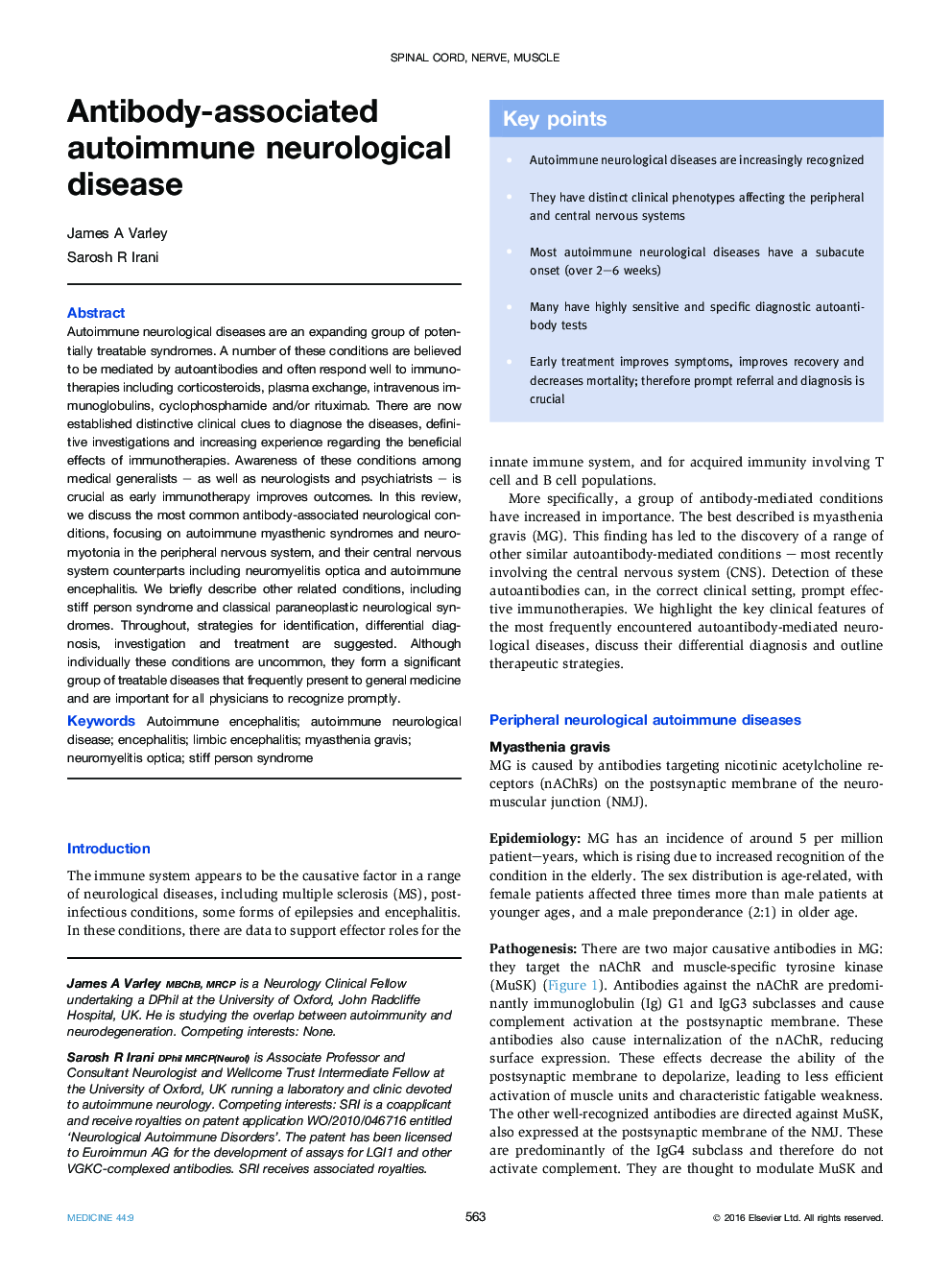| Article ID | Journal | Published Year | Pages | File Type |
|---|---|---|---|---|
| 3804588 | Medicine | 2016 | 7 Pages |
Autoimmune neurological diseases are an expanding group of potentially treatable syndromes. A number of these conditions are believed to be mediated by autoantibodies and often respond well to immunotherapies including corticosteroids, plasma exchange, intravenous immunoglobulins, cyclophosphamide and/or rituximab. There are now established distinctive clinical clues to diagnose the diseases, definitive investigations and increasing experience regarding the beneficial effects of immunotherapies. Awareness of these conditions among medical generalists – as well as neurologists and psychiatrists – is crucial as early immunotherapy improves outcomes. In this review, we discuss the most common antibody-associated neurological conditions, focusing on autoimmune myasthenic syndromes and neuromyotonia in the peripheral nervous system, and their central nervous system counterparts including neuromyelitis optica and autoimmune encephalitis. We briefly describe other related conditions, including stiff person syndrome and classical paraneoplastic neurological syndromes. Throughout, strategies for identification, differential diagnosis, investigation and treatment are suggested. Although individually these conditions are uncommon, they form a significant group of treatable diseases that frequently present to general medicine and are important for all physicians to recognize promptly.
